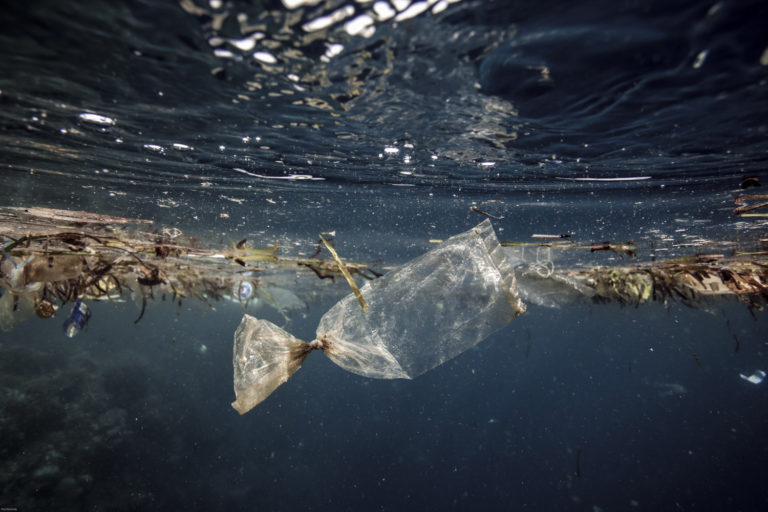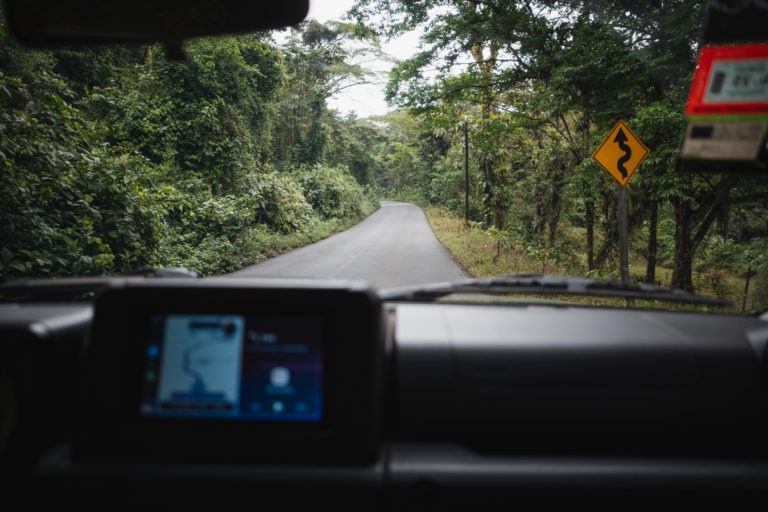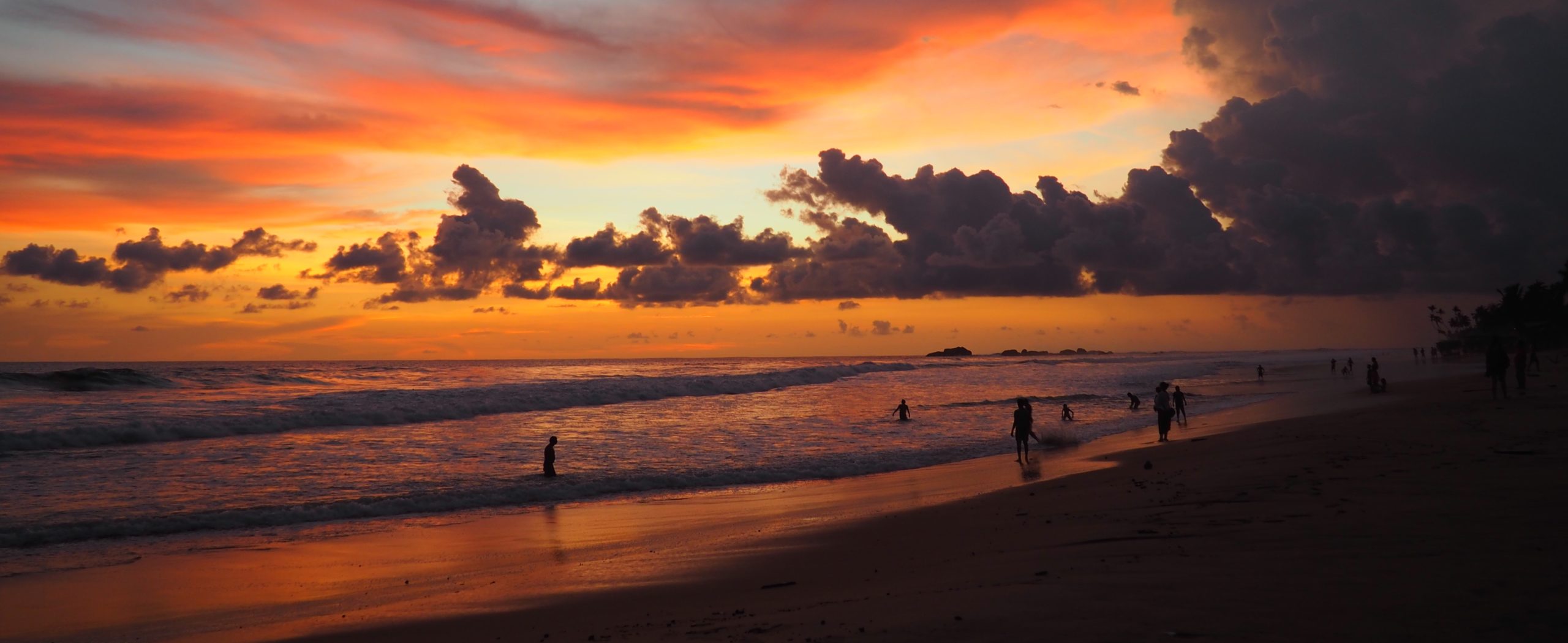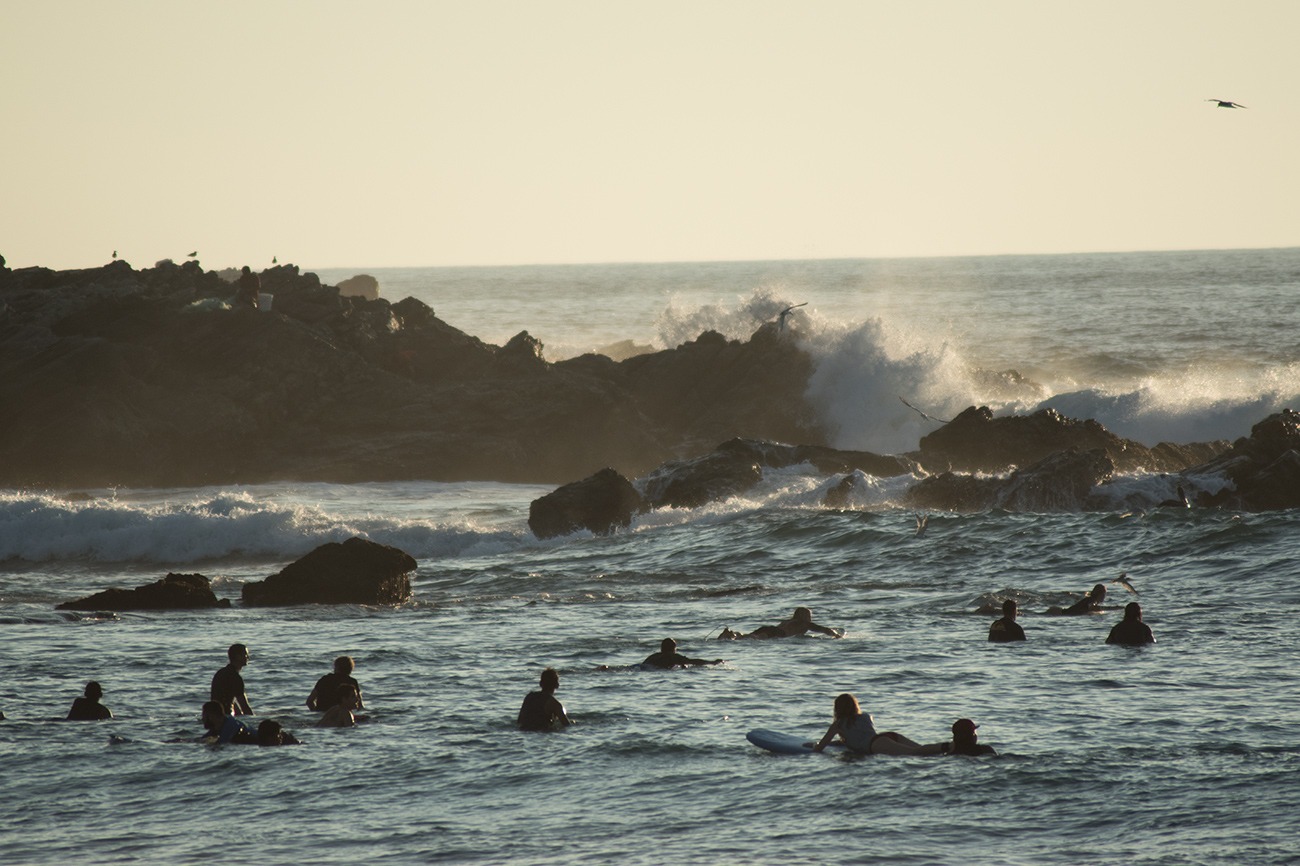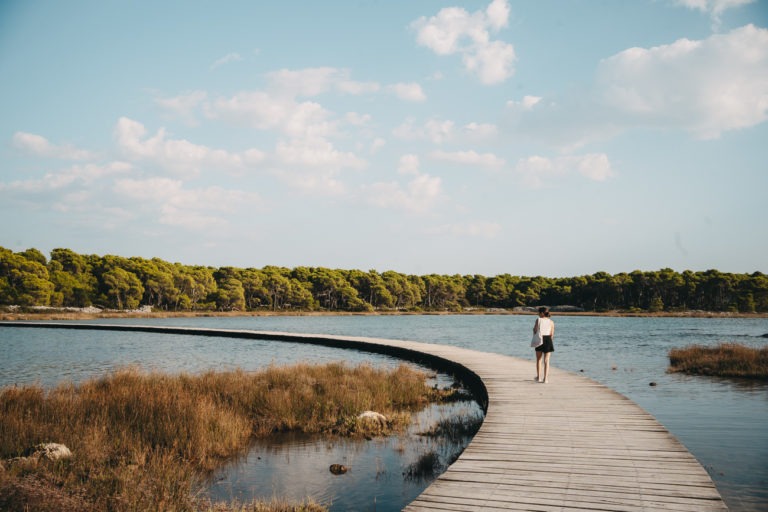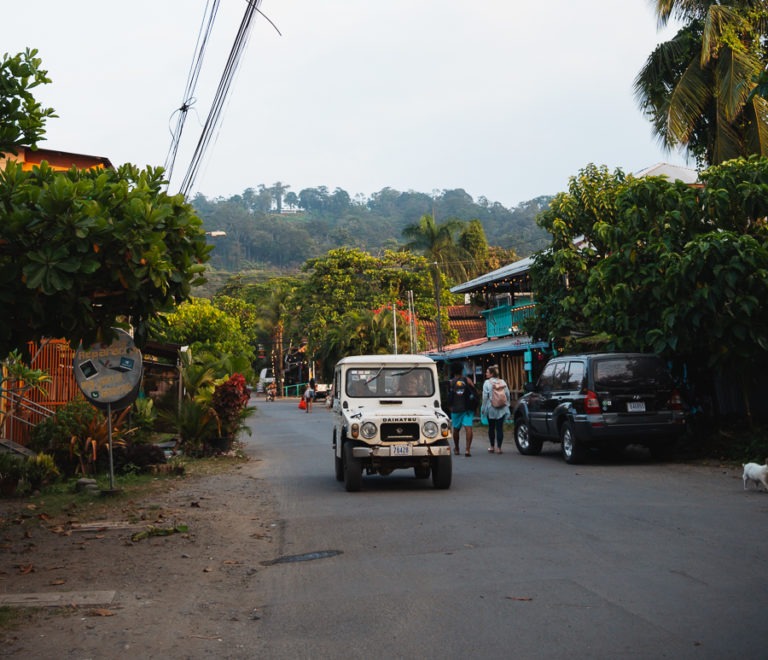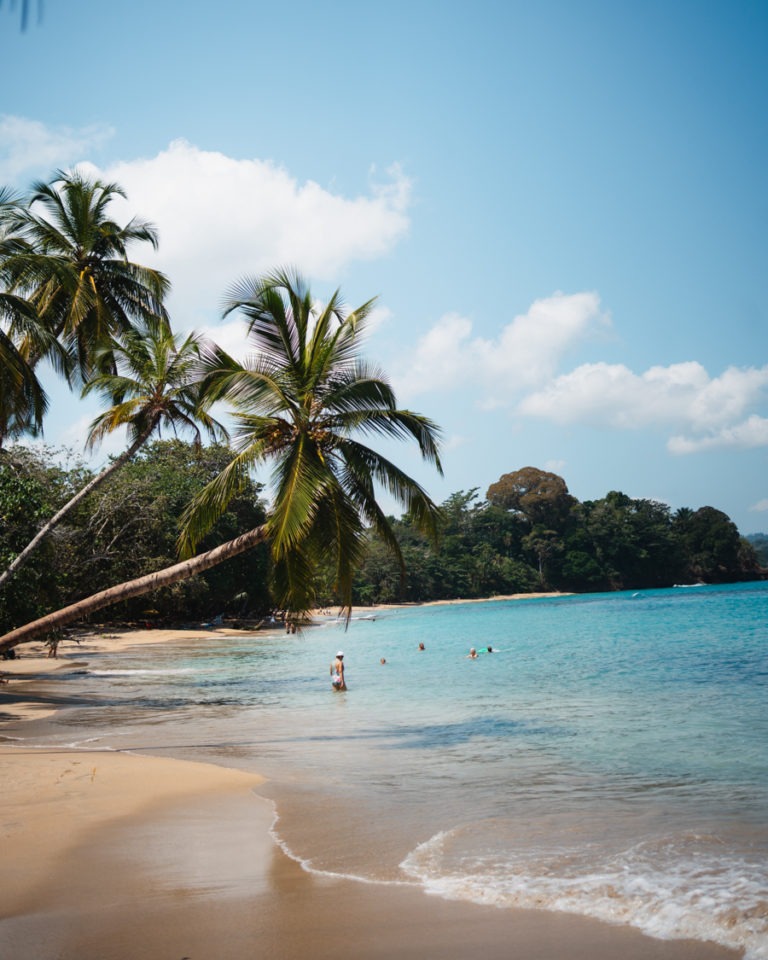Mid march, most beautiful tropical weather in-mid of the lush green island Nusa Lembongan – located just beside Bali. We got up super early to be the first in the water. Julian jumped in the blue and came back with an experience that changed our way of thinking. The beautiful reef with fish between his feet and the turquoise waves at the beginning of the session vanished as soon as the high tide slowly came in. The ocean not only pushed more water in the bay but also plastic waste of all kinds. Yogurts cups, plastic mugs, flip-flops, backpacks. The following article will show you our favorite sustainable travel tips.
Hard to grasp how bad ocean pollution actually is when only 1% of the plastic in the ocean can be seen on its surface.
As negative the experience was, we are equally thankful for it. When we started discussing the plastic that occurred with high tide, we started to question our consumption. From this day onwards we researched the topic of ocean pollution and climate change, as both of us relate to the way we live, and started saving plastic packaging here and there. Partially it’s really easy and in this post, we are going to share our 15 tips for eco travels aka more sustainable travels!
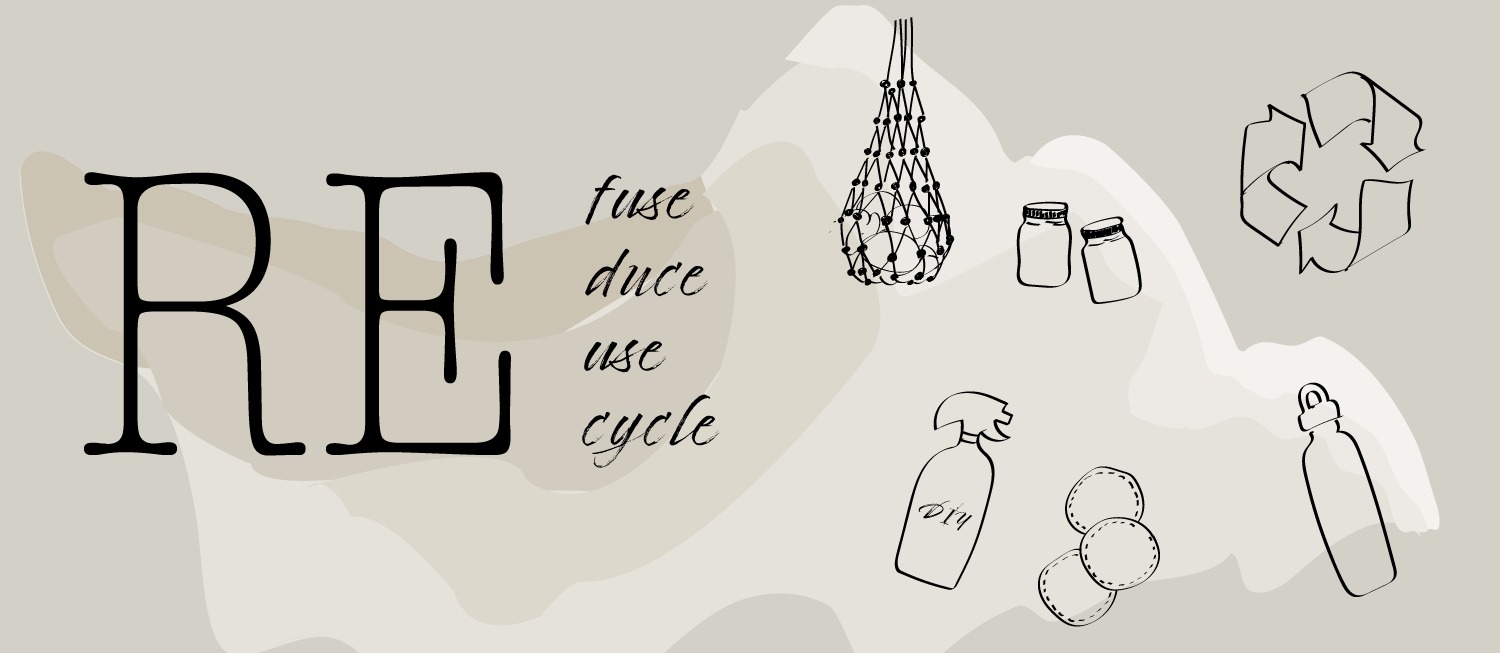
Prior to the trip – sustainable travel tips
#1 Is a flight really necessary?
For eco travels, ask yourself the question if a flight is really necessary. Is the plane the only matter of transport or is it just a bit faster or cheaper?
But we know, we don’t travel little, we are fully aware of that and CO2 emissions are certainly our biggest vice.
Depending on the trip you plan flights aren’t always necessary as trains or busses are an equally good option. Especially in trains you also have the great advantage of being productive on the trip. With not having all the little steps like security checks you can work or read, what you can’t do that concentrated at the airport and in the plane.
Besides just traveling less, we always question the necessity of the flight.
Julian did it the same way when he needed to go on a business trip to Berlin. The flights looked cheap but after a bit of research, he found trains even cheaper so he booked them right away. From Cologne, crossing Germany from west to east in 4:20h. The great thing here: Not only better for his carbon footprint but also 4:20h of productive working time with mostly stable WiFi.
#2 Eco-licensed accommodation
Outside of Europe this point can, frankly speaking, be one of the harder ones. In Germany and countries close by you find many accommodations having a trust mark. There are 70 different ones in Europe with very different meanings.
These trust marks, for example, can prove that hotels watch that the food they serve comes from the region and that farmers are treated well and paid fairly.
#3 Direct Flight
Direct flights are not only more comfortable but also emit less CO2. A reason for that is not only that the plane is in the air shorter but for accomplishing the trip just needs one takeoff and one landing. Most of the time direct flights tend to be a bit more expensive but sometimes rethinking the route you are planning to do already help.
An example: From Düsseldorf, Germany you will get direct flights to Cancun. To Mexico-City you don’t find any from Germany. So Cancun might be the better starting point and in this case also the cheaper option. By the way: Here’s our favorite travel route through Mexico!
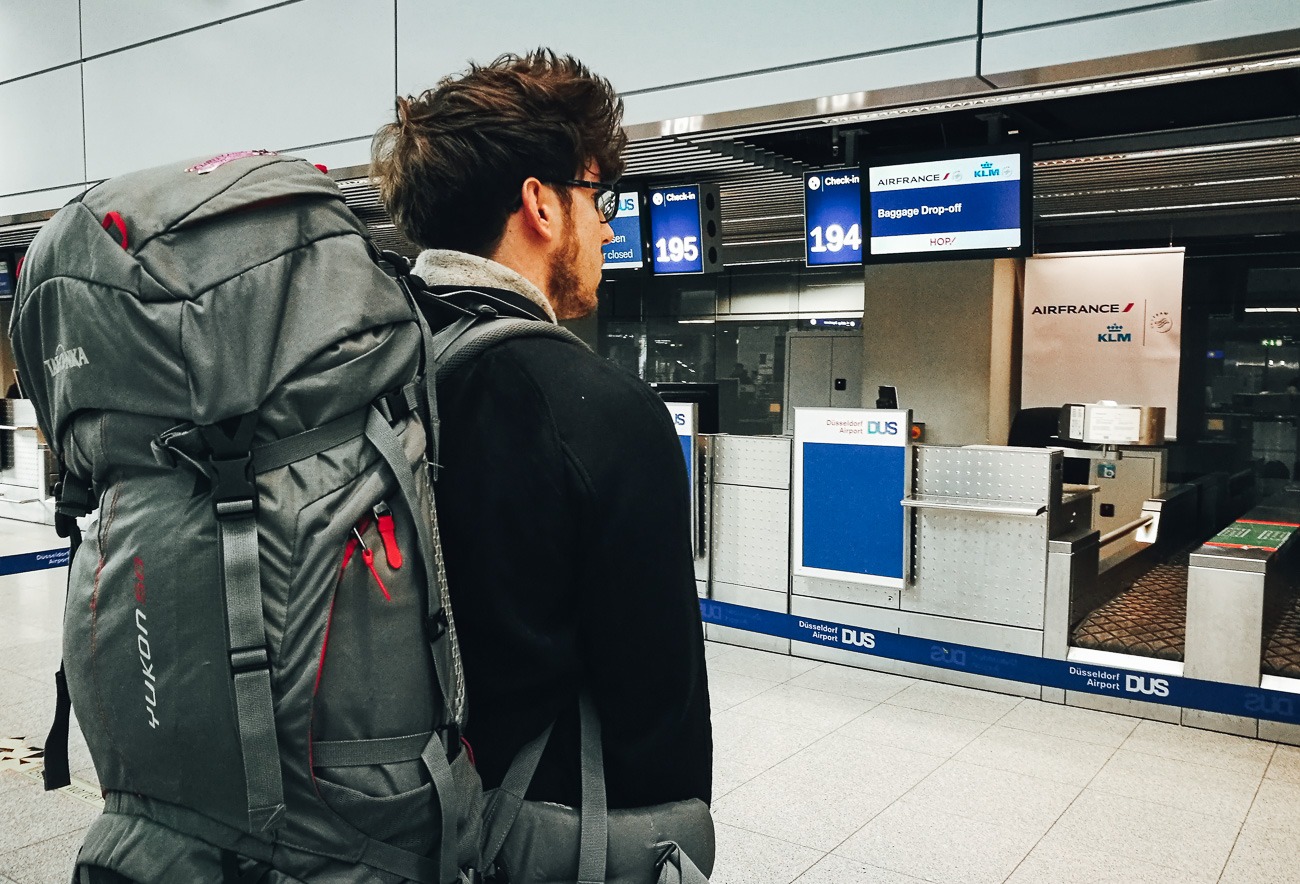
#4 Pack less and more sustainably
Since we think more about sustainability and more about eco travels, we know that it all comes back to consumption. Here, less actually is more (for the planet). Always question what you pack and leave the one or another t-shirt at home. As well as that, question your shopping prior to the trip. Do you actually need this new shirt? These new flip flops? These new shorts?
So do something good for your wallet and the CO2 emissions! Save a kilo or two in the plane as well as some bucks in the online shops of this world.
#5 Question your pre-holiday shopping
Sometimes we tend to go wild on shopping before leaving. But, stop! Are new shorts really necessary? The most sustainable product is the one you don’t buy, that’s for certain. According to Greenpeace, the clothing industry emits more C02 than all international flights and shipping combined. The main problem: fast fashion.
Again, it all starts with ourselves. We all should consume less, buy better products that last longer or second-hand if we need something. Consuming less and buying better products saves not only resources but also money, in the long run! Consider that when tempted to get a few new things.
As soon as we started buying more consciously, we are proud again of the products we buy. Don’t consider shopping shouldn’t be a hobby, it’s our consumer’s duty to be aware of what we buy.
➳ If you really need something, have an eye on the production and the used materials. Outdoor clothing from Patagonia, smartphone cases from woodcessories and other brands that use recycled textiles for your new bikini, for example 🙂
#6 Do It Yourself – Cosmetics
Next tip for eco travels – DIY cosmetics! First, you might think that making your own cosmetic products would be a lot of work but it actually isn’t. Many of the products we buy in drug stores can be made with a handful of products you might have at home.

For example, making your own deodorant is as good as the purchased one but also has a positive effect not requiring any packaging.
You can also easily make your own: carrot oil (replaces makeup) and after sun.
#7 Get reef-friendly sunscreen! 🐠
We all love to be at the beach, right? Protecting our skin is more important than we think. But protecting our skin often comes with harming the reef of our oceans. Have an eye on the ingredients of the sunscreen you buy. When these only contain zinc oxide and/or titanium oxide, you are good to go. Most others, do a lot more harm than good.
Hawaii goes ahead as a good example by banning all sunscreen that harms their reefs. Also importing these becomes illegal at the beginning of 2020. Sunscreens based on zinc are not only better for the reefs but also a lot better for yourself. Regular sunscreens often get absorbed into the body. The chemicals in the sunscreen are obviously not good for your body. Zinc, in comparison, just sit on your skin reflecting or absorbing the sun’s harmful rays. So, investing a few more bucks might be worth it!
#8 Be digital!
Our following suggestion to travel more eco-friendly is a really easy one.
Reading and holidays go hand in hand, that’s for certain. Finally, you got the time and read your new book in a hammock, ideally with a fresh coconut beside you. For exactly this, we fell in love with the Kindle. You need to charge it once a month, it saves a lot of weight and space and you can read in bed without any light switched on.
Unarguably smartphones became our daily acquaintances which have pros and cons. Not looking at the many hours wasted watching cat content, while traveling the little guys can be incredibly handy (Fun fact: We Germans call our mobiles ‘Handy’).

At the airport or the train, you don’t need printed tickets anymore as we all carrying them around in our pocket. Make use of this luxury and refrain printing your travel documents. Among all, no bits of paper everywhere in your bag! Happy travels.
Note: As the production and shipping of the Kindle also eat up resources we dug a bit deeper into the topic of ebooks vs books. Summing things up, we can say that the more you read, the more sustainable an ebook reader becomes. If you only read two books per year, regular books would be the more eco travels option.
#9 Research sustainably!
Before your trip, you’ll find yourself asking Google a lot of questions. But why Google? Using Ecosia – the search engine that plants trees – is (almost) as good and donates 80% (!) of their profits to plant trees. Through us users, almost 75 million trees have been planted already. Researching sustainably has never been easier, thanks to Berlin, Ecosia!
Our second research tip also involves a company (again, an unpaid mention). Omio! Booking trains anywhere but in your home country is a big pain! Not anymore. In Italy, where we did everything by train, Omio made our life here extremely easy. We didn’t even book tickets in advance. We just went to the train station, knowing roughly when the trains come and booked at the platform. The app handles everything for you. Tickets in the app, no need to print anything. Again, thanks to Berlin!
During your trip – sustainable travel tips
You made your way to your destination! Now we need to share some sustainable travel tips on how to be more responsible here and serving a good example.
#10 If possible, recycle! ♻️
Sometimes it can be harder to recycle abroad than at home. But most of the time it still works. In Peniche, for example, empty bottles often get thrown away straight in the regular bin as the city only has one glass container. However, the good thing: The glass container is located at the beach, where you will be anyways. So, just take your bottles from the evening before and quickly throw them into the container before your surf session in Peniche.
This doesn’t only apply for Peniche but also for many other places. Our tip: As soon as you arrived, quickly inform yourself on how to recycle best.
#11 Be an example!
Be an example for other people. Not everyone thinks the same way as you do! For some people, the ocean still seems to be a good ashtray and rubbish at the wayside, not a big deal.
Thus, you need to be an example and pick up trash if you see any. You will be astonished how the reactions of some people are. Let’s all be part of the solution, not the problem!
#12 Reusable Bottles ☝🏼
Reusable bottles do not only look better than an ugly plastic bottle but are also a lot better for mother nature. While traveling, always looks for the option to re-fill your water bottle. At airports, you’ll have many options and especially in the far east restaurants offer bottle refills for a few cents.
Easy! You saved money as well as did something good for the planet! Great!
#13 Jute Bag
Not only accessories for the hipster, but also a must-have for every traveler that watches how much plastic is used while shopping groceries.
Not only good for more sustainable travels but also good for the bakery on the weekend.
#14 Farmers markets
When farmers sell fresh fruit and veggies, they mostly come from local fields and didn’t get flown around the entire globe. Consequently, the veggies have significantly more vitamins and better life-cycle-assessment. Beyond that, you will always start a conversation with locals, get to know the country you are in better and perhaps get a valuable tip on what to see around the corner!
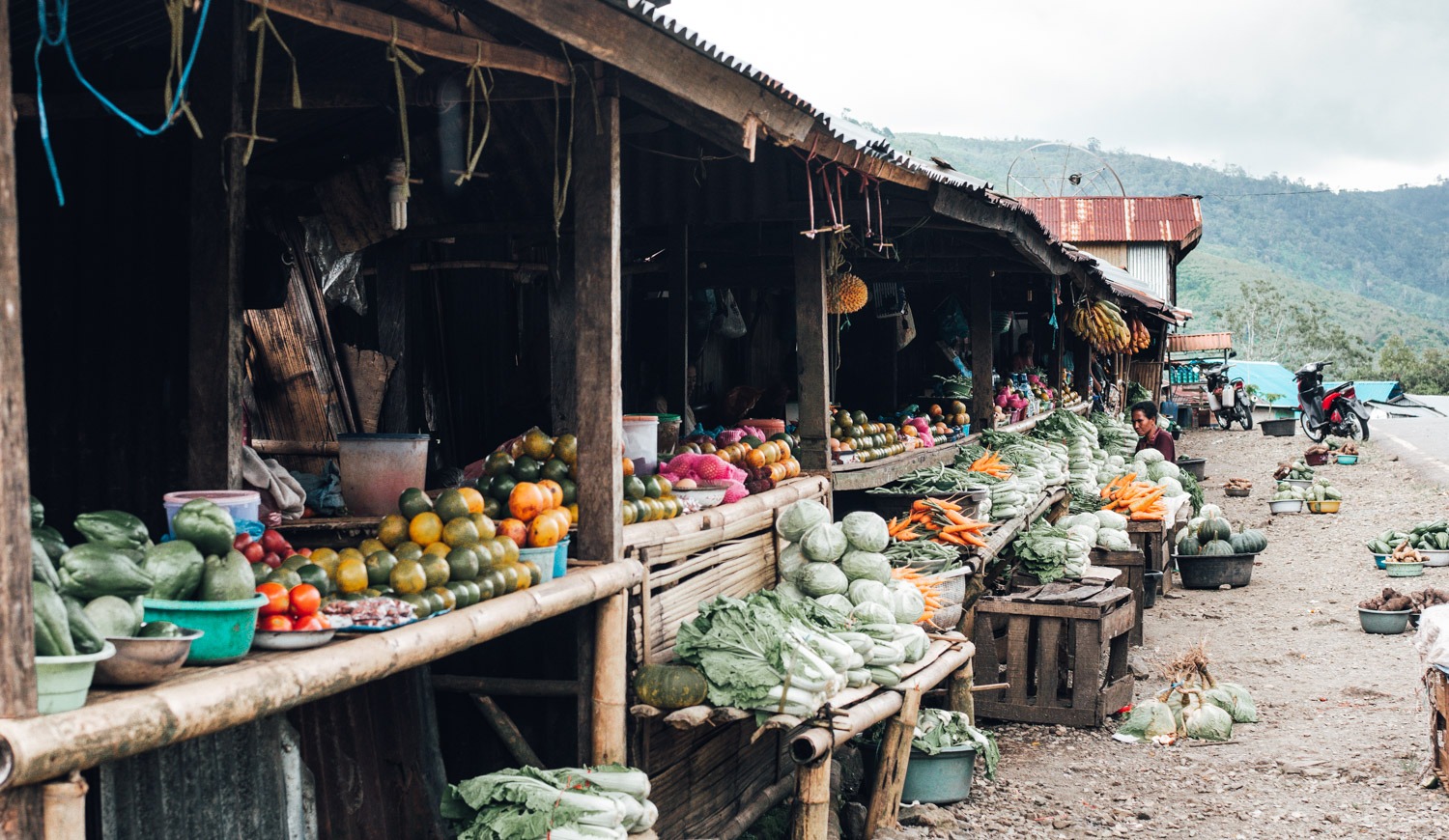
#15 Switch lights and air-con off!
We all sometimes tend to switch the light on even though we don’t really need it. Let’s question our behavior here also and watch where the light actually is switched on. We often saw that the light in the kitchen is still switched on, even though dinner is already over and we are chilling in the living room.
To bring the room temperature down to 20 degrees in Bali comes with the need for a lot of energy. To keep the often not well-isolated rooms on this relaxing temperature is from an ecological standpoint total nonsense!
Use the air-con consciously and remember that a fan often is as good and even better for your own health.
#16 Use towels multiple days
In most hotels, towels lying on the floor symbolize that you want new ones. After you took a refreshing shower, think of that and put it somewhere where it dries until the next shower. Through this, you won’t need new towels as quick and save a lot of water!
#17 Take shorter showers 🚿
Saving water starts at its own routine. We also tend to close the eyes standing under the water and enjoy the refreshment. Often we all lose the sense for the water that we waste through this.
If you shorten your showers a few seconds each time, you will have saved a few hundred liters of water at the end of the year.
After the trip – sustainable travel tips
#18 Offset your flights
To be fairly honest, sustainability and travels are two things that don’t go very well together. We know our duty as a travel blog and know that flights are one of the worst things we can do for our climate. As explained in the beginning, we have an eye on the number of flights we do during the year and try not to take any planes inside of Germany anymore. As well as that we question the short weekend trip, making use of the incredibly cheap ticket prices from airline discounters and rather visit Julian’s sister in her garden. Surely also extremely relaxing!
Despite all that, traveling and exploring new cultures is still one of our biggest passions, which we do not want to quit entirely. Here’s our last tip if you took a plane, either for a business trip or for leisure purpose:
Donate a voluntary amount to an organization that uses the money for projects that focus on climate protection. We personally use cooleffect.org!
The so-called flight offsetting doesn’t lower CO2 emissions but works towards saving these in the future.
And last but certainly not least: Spread the word!
These were our 18 tips for eco-travel and sustainable travel that are easy to implement on the road. Traveling itself will never be fully sustainable but following some of these sustainable travel tips, we would do a little less harm.
The field of sustainability is extremely complex, thus we are learning ourselves on a daily basis. We will share these updates here on our blog and on our Instagram Stories as well as feed posts.
What does sustainable travel mean to you? What are your tips for doing something good for the environment when traveling? Feel free to comment on this post!

